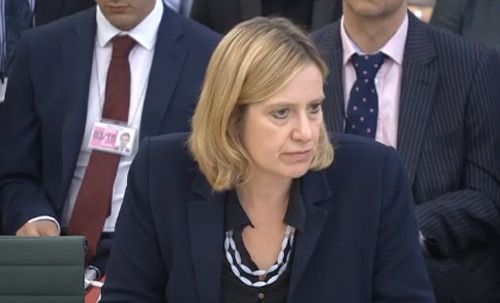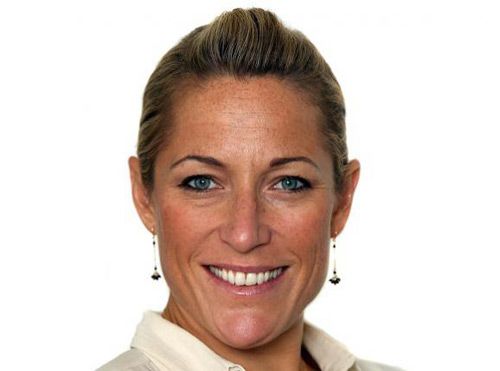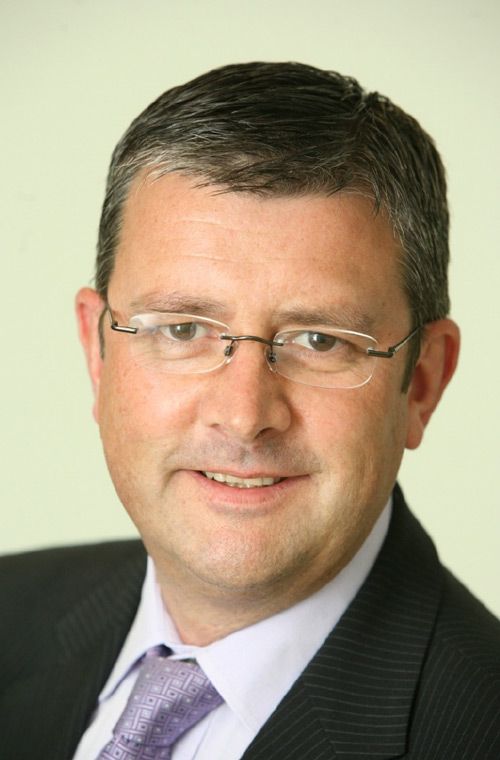


The Government has announced that it has stopped funding the Green Deal Finance Company, effectively putting an end to its flagship energy efficiency scheme.
As a result of “low take-up and concerns about industry standards”, Amber Rudd, secretary of state for the Department of Energy and Climate Change (DECC), announced her department would also stop any future funding releases of the Green Deal Home Improvement Fund (GDHIF).
Speaking on July 23, Ms. Rudd said in a statement: “We are on the side of hardworking families and businesses – which is why we cannot continue to fund the Green Deal.
“It’s now time for the building industry and consumer groups to work with us to make new policy and build a system that works.”
Existing Green Deal Finance Plans and GDHIF applications and vouchers will continue to be funded, but the Green Deal Finance Company has now ceased accepting new applications. According to the company, this is to ensure that sufficient funds exist to support those applications that have been lodged in recent weeks and are already being processed.
The decision to close the Green Deal was made as part of a wider review of the Government’s energy efficiency policies, but has caught many within the energy efficiency sector by surprise. According to a letter sent to the Green Deal Finance Company on July 23 informing it of the closure of Government funding, chairman Martin Callaghan had met with Lord Bourne, parliamentary under-secretary of state at DECC, just a week earlier on July 16 to discuss the future of the scheme, and a proposal for further financial support.
However, in an address to the Energy and Climate Change Committee two days before the announcement on July 21, Amber Rudd said: “The Green Deal policies have not been as successful as were first envisaged but I’m going to be looking at the whole area so that we can see what other policies will work better,” suggesting the scheme was about to be axed.
This decision has been heavily criticised across the political landscape, particularly as the announcement came on the same day that Prime Minister David Cameron reiterated that his has been “the greenest Government ever” while speaking at The Royal Welsh Show in Builth Wells.
Caroline Lucas, MP for the Green Party, said: “David Cameron had the audacity to again call his government the ‘greenest ever’ today [July 23] – at the very same time as he takes a wrecking ball to key climate and energy policies.
“This week has seen crucial climate and energy policies in the firing line as the Government pursues its myopic and reckless austerity agenda. The fact is that the Green Deal never did enough to roll out the home energy efficiency schemes this country desperately needs. But the Government’s rhetoric – which suggests that cancelling the scheme is good for taxpayers – is deeply flawed.
Jonathan Reynolds, Labour’s shadow minister for Energy and Climate Change, said: “The Green Deal was billed by the Government as ‘the biggest home improvement programme since the Second World War’ but has been a flop from start to finish. Today’s announcement simply serves to confirm that the Government’s approach to energy efficiency has been a complete and utter failure.
“With more than two million households in fuel poverty, the Government urgently needs to lay out what plans they have to replace the Green Deal.”
The closure of the Green Deal follows several other cuts to the Government’s green agenda, including the cancellation of zero carbon homes policy and higher energy efficiency standards, which were due to come into force in 2016.
Angus Macneil, chair of the Energy and Climate Change Committee, said: “The Government has once again slipped out another announcement about cuts to green policies after Parliament has risen for the recess.
“Energy efficiency is the most effective way to save on carbon and bills. The government is being penny wise, but pound foolish if it thinks it will save bill-payers money by scrapping energy saving schemes.”
The proximity of the Government’s green scheme announcements has caused deep frustration within the energy efficiency market, with many warning that there is little confidence left in the Government to be effective in this area.
Julie Hirigoyen, chief executive of the UK Green Building Council, said: “With each passing day, this Government puts an end to another green policy. Government’s strategy on dealing with high energy bills through home energy efficiency is now dead in the water.
“This is yet another announcement with no forewarning that will leave the energy efficiency industry battered and bruised.”
The Green Deal has faced several issues since it was first launched in January 2013. Former energy minister Greg Barker, who was heavily involved in the scheme’s launch, predicted that 10,000 Green Deal plans would be signed by the end of the scheme’s first year. According to the latest data from DECC, only 15,596 households had GD Plans in progress at the end of June 2015, with less that 10,000 ‘live’, meaning all measures were installed.
The unsuccessful history of the scheme caused many to call for the Green Deal to be kept in place but improved, as currently there are no other “pay-as-you-save” models in operation for energy efficiency.

Neil Marshall, chief executive of the National Insulation Association, said: “Whilst it was widely recognised that the Green Deal and GDHIF could be improved upon, to put an end to both of them so abruptly without any warning or anything to replace them is a major issue and concern for both householders and the supply chain, and will only add to the current hiatus in the energy efficiency market.
“The decision to pull Green Deal and GDHIF without first developing alternatives will seriously undermine consumer confidence and also the confidence of industry and its ability and willingness to support whatever replacement framework is developed.”
All eyes will now be on Amber Rudd to see where the UK’s energy efficiency policy is headed. The Energy Company Obligation (ECO), which has been responsible for around 97% of the energy efficiency measures installed in the last two years, is due to end in March 2017 with no word on what will follow.
The Government has commissioned an independent review led by Dr. Peter Bonfield OBE to look at standards, consumer protection and enforcement of energy efficiency schemes and ensure that the system properly supports and protects consumers. Meanwhile, DECC says it will work in partnership with the Department for Communities and Local Government to improve the UK’s existing housing stock. However, there are currently doubts as to how this will be achieved, with the Committee on Climate Change recently estimating the cost of improving one million homes to be around £1.2bn – a sum that Amber Rudd is not confident will be available from DECC’s budget.
Ms. Rudd will now enter into a policy review to see which schemes can be taken forward as part of a new approach to energy efficiency. This will be done in partnership with industry, an attitude that has been welcomed by many.
Neil Marshall added: “DECC are aiming to develop and establish a more stable, long-term, coherent framework for home energy efficiency. We welcome Amber Rudd’s announcement that she wants to work with industry in doing this and we look forward to contributing towards it.
“We would urge the Secretary of State to set out a clear timeline for the delivery of the proposed new framework as soon as possible to provide much needed clarity for consumers and the industry, whilst putting in place an urgent transitional mechanism to fill the void left by Green Deal and GDHIF and help address the current hiatus whilst the new framework is developed.”
The news has also prompted renewed calls for energy efficiency to become part of the UK’s infrastructure policy. Ed Matthews of the Energy Bill Revolution added: “The Treasury plans to invest £100 billion in infrastructure over the next five years. Just a tiny proportion of this investment could help insulate millions of UK homes and drive down energy bills in the most cost effective way. No other infrastructure investment could achieve so much.”



